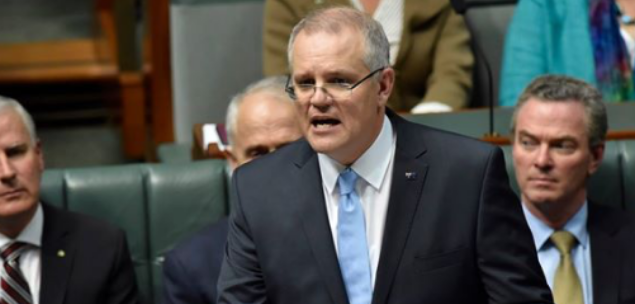A third round of stimulus is expected soon in the hopes of keeping the economy afloat during the COVID-19 pandemic, with more details on Morrison’s reference to “hibernation” for small business included.
Recent updates from the COVID-19 pandemic from the weekend include the limitation of gatherings to just two persons, and the government’s announcement of further support for the aviation sector.
The Morrison government on Saturday announced almost $300 million in additional funding for the aviation sector… Meanwhile, the government has a plan of “hibernation” for other businesses in order to protect them from the economic hit caused by COVID-19.
He indicated that this will be part of an upcoming third stimulus package (expected in the next few days).
There have been hints that this new edition of stimulus will include wage subsidies for small businesses.
The expectation around wavering rent for small businesses has already been realised. Scott Morrison confirmed a six-month pause to evictions for renters and small businesses over the weekend. This of course is only applicable to renters facing financial difficulty caused by the pandemic.
In his address, the Prime Minister said “My message to tenants, particularly commercial tenants, and commercial landlords, is a very straightforward one – we need you to sit down, talk to each other and work this out about looking at the businesses which have been closed, businesses that may have had a significant reduction in their revenues.”
Read more: Stimulus package 2.0: What does the $66 billion package mean?
The Australian Small Business and Family Enterprise Ombudsman Kate Carnell has welcomed the “hibernation” approach.
She said that “the only way for small businesses to survive the coming months is if they can effectively hit pause for now.”
“For businesses to bounce back when this health crisis is over, they need a holiday from all costs that they incur during this extremely difficult period.”
“Small businesses – including those that are forced to shut their doors as well as those who suffer a significant loss of income – should be able to go into business hibernation.”
Although the details around this COVID-19 hibernation tactic are still being considered by government, it will likely involve landlords and essential services putting their fees on hold.
Ms Carnell said, “Landlords, utility and service providers, telecommunications and all levels of government will need to put their fees and charges on hold or face losing that customer altogether if there is a tidal wave of insolvencies.
“Part of this needs to be a wage subsidy for staff that remain attached to the business.
“Those staff would need to be paid at least 60% of their wage up to a maximum monthly amount. This of course would need a minimum safety net built in.”
Further updates are expected to come sometime this week.

